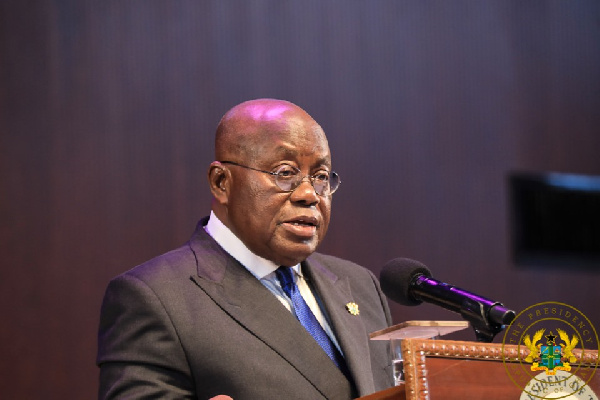The President of the Republic, Nana Addo Dankwa Akufo-Addo, says his government has made significant progress in all facets of the economy, over the last two and half years, and is working to put the country on the path of progress and prosperity.
According to President Akufo-Addo, Ghana have made significant progress in economic development after exiting from the IMF programme.
He said his government is determined to maintain discipline in the management of Ghana’s economy so that we never have to resort to an IMF bailout again.
President Akufo-Addo made this known today, when he delivered an address at the 2nd Ghana Diaspora Homecoming Summit, held at the Accra International Conference.
Addressing the gathering, he stated that his administration inherited an economy confronted with significant challenges, with all the macroeconomic fundamentals pointing in the wrong direction, under the emergency management of the International Monetary Fund.
The Ghana bequeathed to his administration, the President said, was one with an economy growing at a rate of 3.6%, with a fiscal deficit of 9.3%, was saddled with erratic power supply, had GH¢1.2 billion of NHIS arrears, a dangerously fragile banking sector, with weakly capitalised banks, widespread corruption; and widespread unemployment, amongst others.
However, the President stated that “by dint of hard work and prudent management of our resources we have made modest advances, and I am happy to report that we have been able to steer our country out of the stormy waters that had characterised the years before 2017.”
He noted that his administration has cleared all NHIS arrears inherited, paid nearly 50% of the inherited energy debt, and bold measures have been taken to sanitise the banking system and strengthen it, with deposits of 1.5 million Ghanaians safeguarded.
President Akufo-Addo noted that “Free SHS, which was described as an impossibility and a misplaced priority by our opponents, has been successfully implemented, and, from September this year, all students in public Senior High Schools in our country will be covered by the policy.”
On the reduction of import duties at the ports, the President stressed that “my Government listened to both your concerns and the concerns of the population in Ghana, and, in April, we reduced the benchmark values of import duties by as much as 50%, and, in the case of vehicles, by 30%.”
The introduction of initiatives such as the e-business registration system, the national digital addressing property system, the mobile interoperability system which is linking mobile money wallets to bank accounts and the e-zwich card, according to the President, are guaranteeing greater efficiency in the delivery of government services.
All these according to him was reached out of working hard to improve the living standards of our people,





